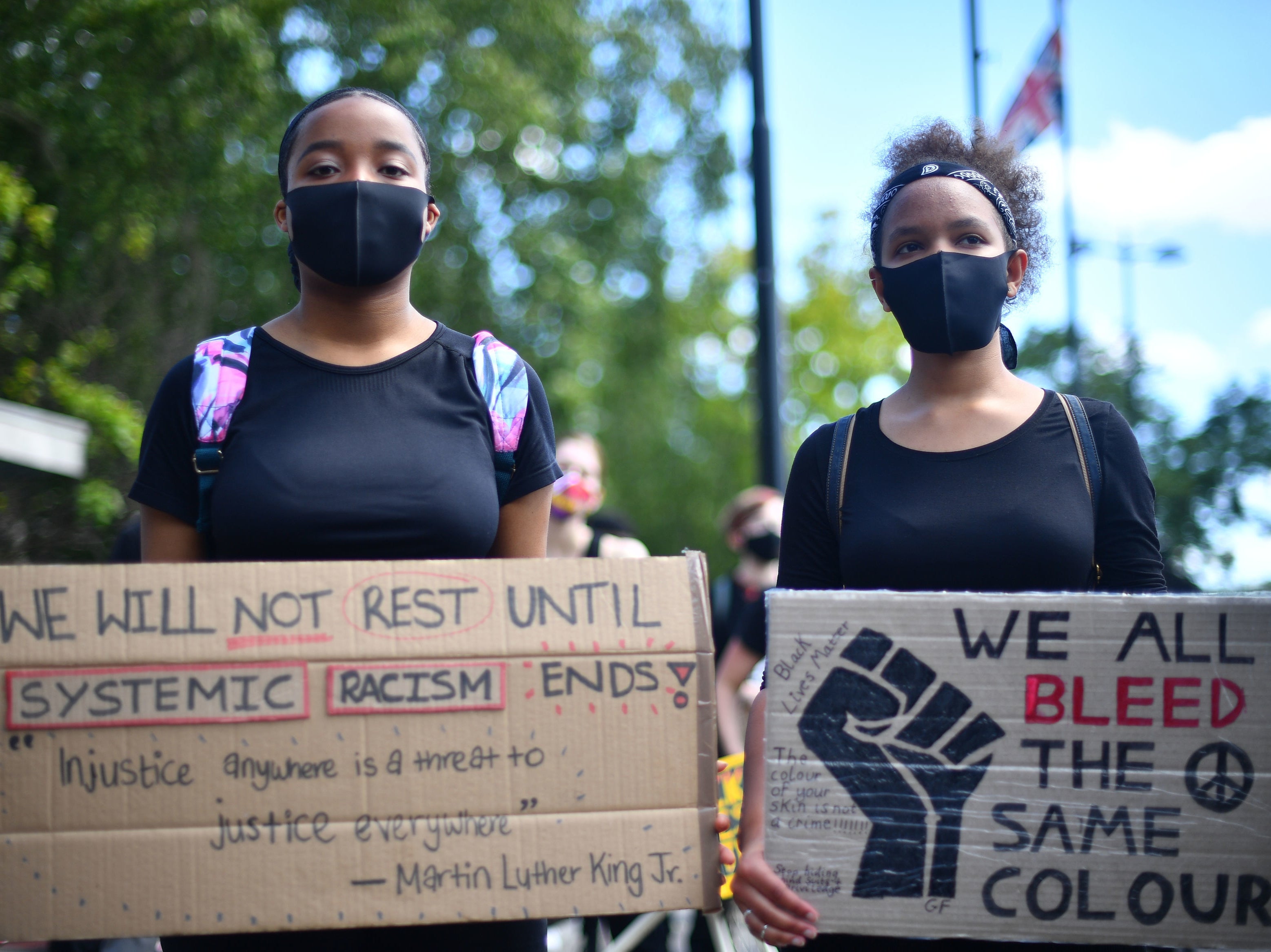After a summer of anti-racist action, Britain finally seems ready to take Black History Month as seriously as it should
Editorial: After three decades, many seem to have woken up to the importance of paying more than lip service to the annual celebration

More than 30 years since its emergence, the UK’s relationship with Black History Month remains complicated. Though great strides have been made to recognise it as a fixture of the British calendar – each year, it seems, hurdles emerge.
It has been rebranded, inexplicably, as Bame History Month or “Diversity Month” as one London council saw fit in 2018. The battle for adequate representation has been long and arduous in schools, where black history is often reduced to lessons about African-American civil rights leaders, or condensed or incomplete classes about the transatlantic slave trade.
This year, however, after months of anti-racist action around the world, many seem to have woken up to the importance of paying more than lip service to the annual celebration. We can hope this is motivated by a sincere desire to amplify the overlooked contributions and achievements of black Britons, rather than a cynical attempt to save face in the event of a backlash. Whatever the case, it feels as if there is something different about Black History Month in 2020.
After a summer of reckoning with their record on race issues, a number of sectors, from advertising to politics and the media, have been forced to reassess their relationship with inclusion, diversity and efforts towards eradicating anti-blackness. As those who felt safe enough to come forward spoke up about their often traumatic experiences of racism in the workplace, the pressure for companies to support them rose too.
There have been some painful moments. One of the most contentious examples was the use of the N-word by not one, but two white BBC employees during programmes. One of the examples led to more than 18,000 complaints to the BBC itself, with an apology only being issued in the wake of the resignation of Radio 1Xtra presenter Sideman.
A number of public figures fell short too, with some politicians refusing to express explicit support for anti-racist protests and Black Lives Matter. The prime minister himself merely insisted that he has “heard” the strength of feeling.
More recently, calls for the Department for Education (DfE) to overhaul the curriculum and teach black history throughout the year have been met with a muted response. Meanwhile, the education group Teach First found during a review of English literature GCSE specifications that the biggest exam board, AQA, which accounts for almost 80 per cent of entries, does not feature a single book by a black author and includes just two books by ethnic minority authors on its syllabus. Not to mention recent moves from the DfE to suppress material that peddles what it perceives as “victim narratives that are harmful to British society”. In the face of all that, faith in impending change is understandably waning.
Against that backdrop, the media cannot ignore how important its role is. Whether we’re talking about creating considered, interesting coverage for Black History Month (and throughout the rest of the year), holding MPs accountable for their actions, or improving inclusion and opportunities for employee progression internally, there is no longer an excuse to let things slide, or to rely solely on diversity training.
As well as our Black In Britain series, which we’re running throughout October, The Independent is committed to making journalism a more inclusive space. That means creating opportunities for black journalists – who make up less than 1 per cent of the industry as a whole – that are exciting, important and lasting, not only for the next 30 days but throughout the year.
More broadly across society, it also means recognising how much black people are still marginalised.

Join our commenting forum
Join thought-provoking conversations, follow other Independent readers and see their replies
Comments